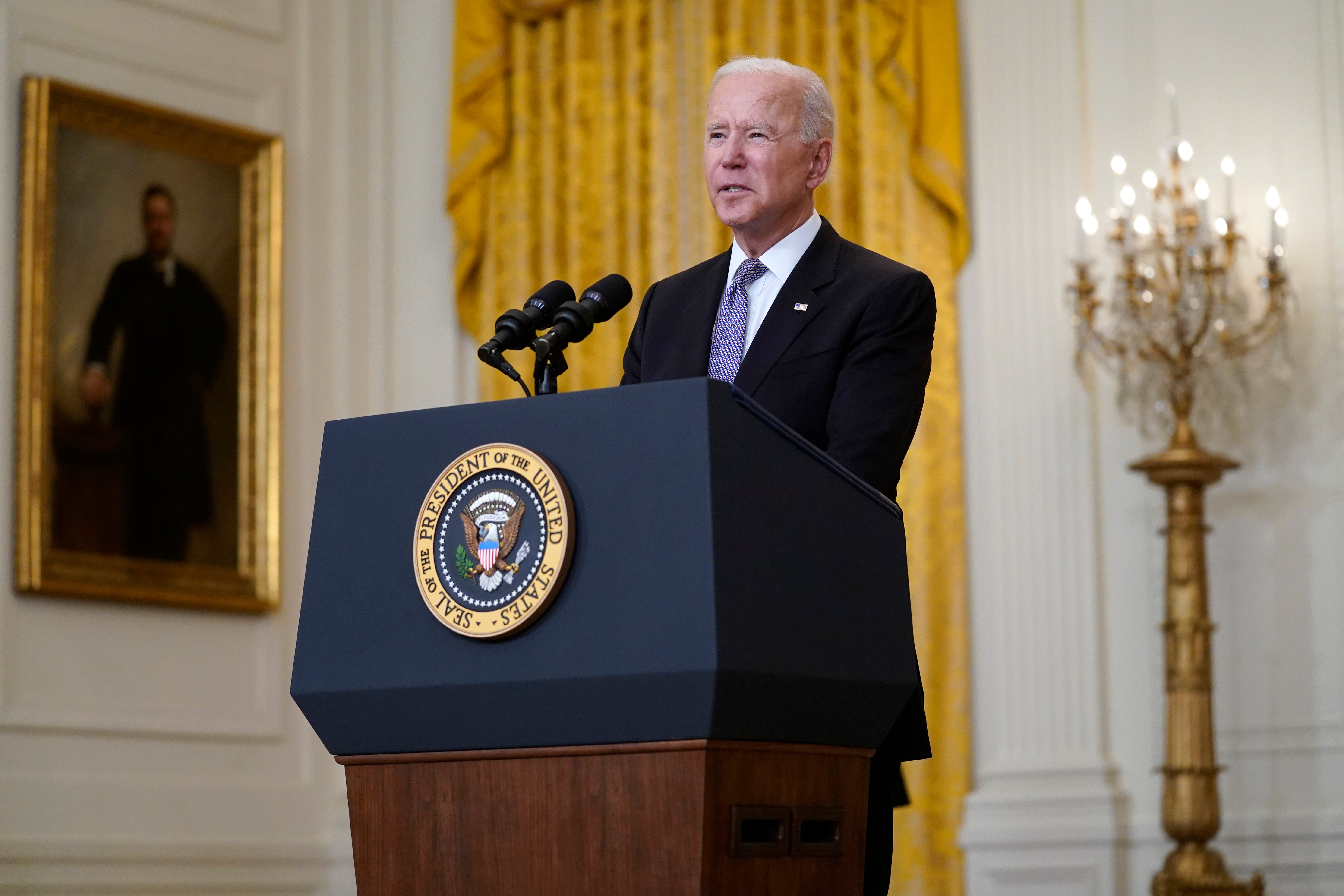Biden reverses Trump changes to bank antidiscrimination law
The Biden administration is repealing changes made by the Trump administration to an important law aimed at stopping banks from discriminating against racial minorities and the poor

Your support helps us to tell the story
From reproductive rights to climate change to Big Tech, The Independent is on the ground when the story is developing. Whether it's investigating the financials of Elon Musk's pro-Trump PAC or producing our latest documentary, 'The A Word', which shines a light on the American women fighting for reproductive rights, we know how important it is to parse out the facts from the messaging.
At such a critical moment in US history, we need reporters on the ground. Your donation allows us to keep sending journalists to speak to both sides of the story.
The Independent is trusted by Americans across the entire political spectrum. And unlike many other quality news outlets, we choose not to lock Americans out of our reporting and analysis with paywalls. We believe quality journalism should be available to everyone, paid for by those who can afford it.
Your support makes all the difference.The Biden administration said Tuesday it will repeal changes made by the Trump administration to a law aimed at stopping banks from discriminating against racial minorities and the poor.
The Office of the Comptroller of the Currency, one of the nation's bank regulators, said it plans to reconsider the regulations written in 2020 governing a law known as the Community Reinvestment Act. The civil rights era law requires banks to document the extent of their lending to the communities that surround their branches in order to ensure they are not just lending to the wealthy or to white customers.
The OCC said it plans to start from scratch, and told banks to effectively ignore the 2020 changes while the agency rewrites the regulations.
Trump's Comptroller of the Currency, Joseph Otting, had made revising the Community Reinvestment Act a cornerstone of his tenure. The law is widely respected by the industry and activists alike, but both sides have agreed for years that it was out of date. Many banks now operate entirely online, ATMs are ubiquitous, and it is increasingly more difficult to define what a “community” is in order to comply with the law.
While Otting said he wanted to modernize the law to reflect changes in the banking industry, his proposal was considered too broad for many activists and for Democrats overseeing banks on the Senate Banking Committee and House Financial Services Committee.
Under the CRA, banks must pass exams to show they are making enough loans in their communities. Banks are required to get a passing grade on the exam in order to open more branches or merge with other banks.
But among the 2020 changes to the law, banks would have been given credit toward passing the exam from issuing credit cards and, under certain circumstances, for loans they make to build or improve facilities such as sports stadiums and hospitals.
Activists argued these changes would have made it easier for many banks to pass their CRA exams, and would disincentivize them from opening branches or approving mortgages in low-income neighborhoods. Civil rights activists have long argued that the law was a powerful tool to get banks to address the systematic financial inequalities in this country.
“CRA was, and still is, a civil rights bill,” said Rep. Gregory Meeks, D-New York last year at a congressional committee hearing reviewing Otting's changes. “Your proposal would undermine that.”
The changes proposed by Otting were so drastic that the other two bank regulators that have authority under the law, the Federal Reserve and the Federal Deposit Insurance Corporation, refused to sign on. This left banks wondering which regulator to follow when it came to compliance.
The Biden administration's move is “encouraging news,” said Richard Hunt, CEO of the Consumer Bankers Association, an industry trade group for the nation’s bigger retail banks. "We hope regulators and politicians put politics aside and find common ground to best serve communities across the nation.”